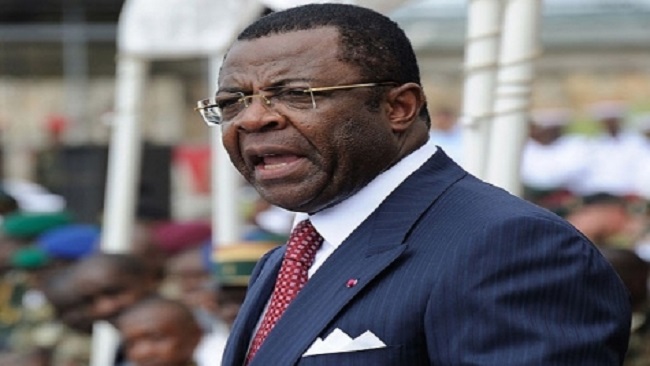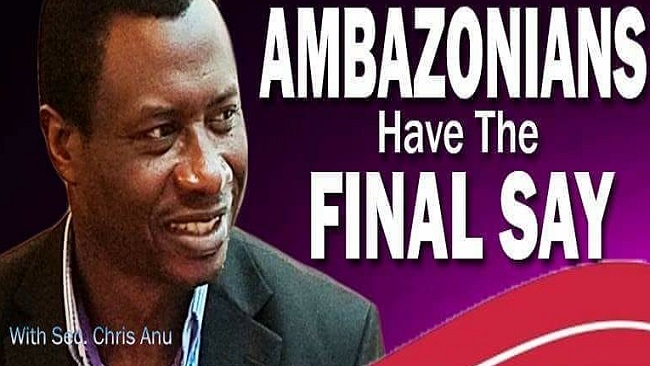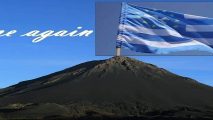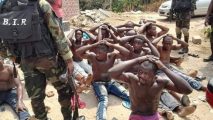11, February 2019
Yaounde: Ex-defense minister barred from leaving the country over corruption 0
The Cameroon Special Criminal Court imposed travel restrictions on former Minister of Defense, Alain Edgard Mebe Ngo’o, banning him from leaving the country “till further notice,” according to an order signed Jan. 30 but made public on Sunday.
The court also barred Ngo’o’s wife Bernadette Mebe Ngo’o, and two army officers, Ghislain Victor Mboutou and Maxime Leonard Mbangue from leaving the country.
The order was due to an ongoing investigation into allegations that the former minister and the three others were involved in bribery and corruption over the purchase of military equipment from Magforce, a company that sells a full range of military clothing, equipment and vehicles.
Ngo’o served in Cameroonian government as Defense Minister from 2009-2015, making him one of the longest serving defense ministers in the country. He was sacked from the government in 2017 after serving as Minister of Transport from 2015-2017.
According to sources at Cameroon’s presidency, he was a “confidant” and “an important security adviser” to President Paul Biya during his stay in government.
Xinhua




























11, February 2019
Southern Cameroons Crisis: The imminent brink of war 0
In a renewed attack, Cameroonian government forces struck the Anglophone village of Ossing in Manyu division in the early hours of Sunday, 10th October, killing and maiming scores of civilians with many displaced. This fresh attack follows Thursday Massacre in Besongabang, another Anglophone village in what is now infamously known as the Anglophone Crisis. The conflict in the Southern region of Cameroon is part of the long-standing Anglophone problem.
During the World War 1, allied forces captured “Kamerun”, as it was then known, from Germany. With the help of the League of Nations, the territory was divided between the British and the French, with a large chunk of the territory becoming French Cameroon. The remaining strip bordering Nigeria was christened British Cameroon. By this time, the British Cameroon which had been split into a northern and Southern administrative units, was governed from Nigeria, even though it was not seen as being a part of Nigeria. In 1960, the independence granted Francophone Cameroon and Nigeria, enabled the United Nations to organize a referendum. This allowed anglophone Cameroonians to decide whether to merge with Nigeria or Cameroon.
As it turned out, independence which was viewed as the most sexy option was not considered in the referendum and so, Northern Cameroons joined Nigeria, while Southern Cameroons opted for reunification with Cameroon. In the wake of its emergence, the constitution of the newly created Federal Republic of Cameroon ensured adequate recognition for the Anglophone region. This suddenly changed in 1966 when the then President Ahmadou proscribed all existing political parties of the time other than the ruling Cameroonian National Union. 6 years later, the government’s federal structure with a unitary system was replaced with a new constitution through a national referendum, that did not tally with a 1961 accord that “proposals for revision [of the constitution] shall be adopted by simple majority vote of the members of the Federal Assembly, provided that such majority includes a majority of the representatives…of each of the Federated States.”
Two years after he took over power in 1984, President Paul Biya felt more comfortable identifying with the name of the country prior to the 1961 unification, and so renamed the nation the Republic of Cameroon. He goes further to alter the national flag from a two-star design, which had signified the union of the anglophone and francophone regions, to that of a single star. Biya’s slur to the anglophone region sparked a decline in relations with the central government.
In disagreement, Fon Gorji Dinka, an astute anglophone lawyer and the first president of the Cameroon Bar Association, condemned the government’s actions as illegitimate and called for an independent anglophone entity known as the Republic of Ambazonia. This is the battle that is still being fought to this day. This festering conflict represents a major test as Cameroon’s future. In the meantime, roughly 20% of the country’s population of 24.6 million people are Anglophone while the majority are Francophone.
The unfair domination of French-speaking politicians in government has long been the source of conflict. Activists in Cameroon’s Anglophone regions are protesting their forced assimilation into the dominant Francophone society, arguing that the process violates their minority rights, which are protected under agreements that date back to the 1960s. Anglophone political representation and involvement at many levels of society has dwindled since the Federal Republic of Cameroon became the United Republic of Cameroon in 1972. This has now led to the growing calls for the Anglophone region to secede from Cameroon.
In his response to the renewed violence in the Anglophone region, NJ Ayuk, an indigene of Anglophone Cameroon and founder of Africa Now Foundation, a charity organization, wants the violence to stop: “. There must be a peaceful solution out of this mess”, he says. “You can’t talk peace with guns”. The leading energy lawyer and CEO of Centurion Law Group, whose family home got burnt in the Sunday’s attack, argues that ” Setting houses ablaze does not bring a solution. I have been blessed and lucky. I am more worried about those who got it worse by this senseless violence. What is troubling is the many people that are being radicalized by the violence. My family can lost property but so many have lost their lives and many are refugees”. “Both sides of this struggle have to seek dialogue. Violence will get our society no where. You only hate those you fear. Politicians can’t claim to love their citizens and then burn their houses at the same time.We are heading towards a point of no return and I have not seen a level of tribalism and ethnic hatred as now and it will take more than words and burnt houses to fix this. It’s real and we must all live up to our responsibility to find peace through dialogue. We are losing a lot of young people. I am saddened by the failure of leaders to find common ground. Violence will not get us anything”.
Although both the Anglophone and Francophone regions have been accused of war crimes and refuse to talk to each other. Separatists have since lost confidence in the government after it violated previous agreements. President Paul Biya said that his “government is open to dialogue only as far as the unity and diversity of our country are not questioned.” This seems particularly tone deaf given the Yaoundé regime’s history of undermining the country’s “unity and diversity.”
www.vanguardngr.com